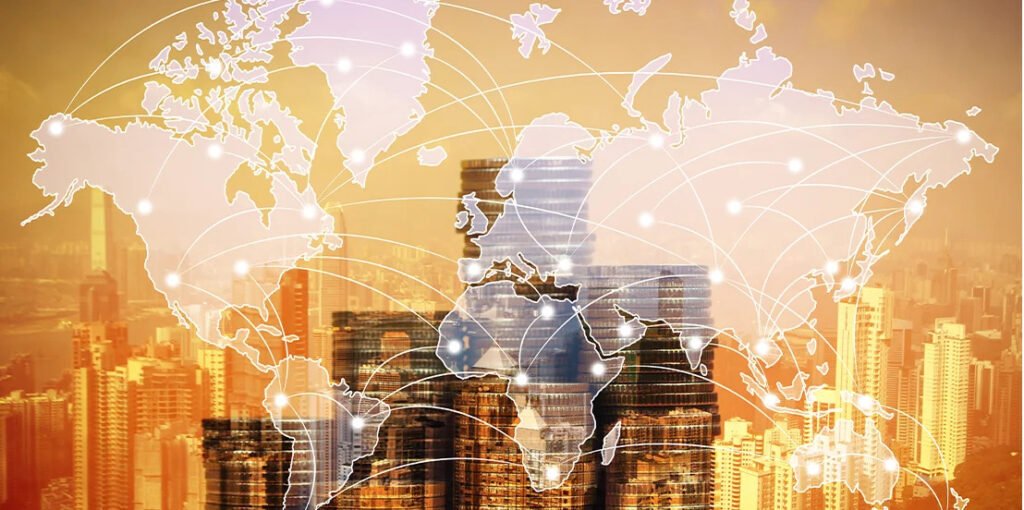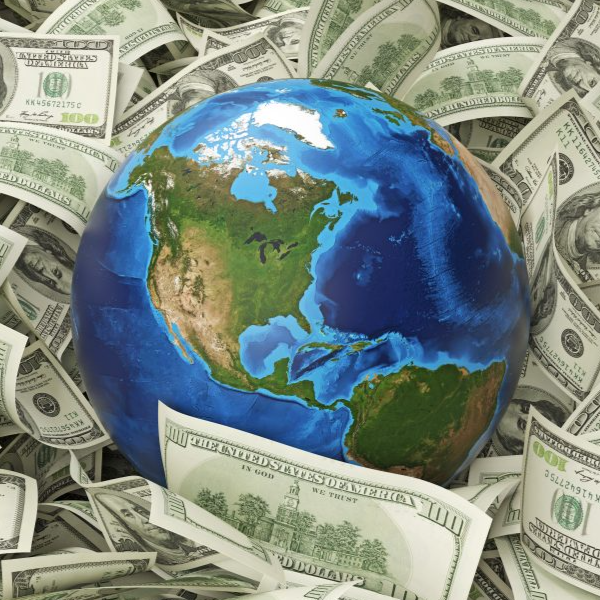The CEO of BlackRock, in May 2022, declared that the Russian invasion of Ukraine marked the end of the globalisation that the world had experienced over the past three decades. This assertion aligns with the growing perception that the globalisation era, characterized by the rapid expansion of free trade and interconnected global markets, is facing significant challenges due to geopolitical tensions, protectionist policies, and economic disruptions.
Globalisation, in essence, refers to the process by which the world has become increasingly interconnected, both economically and politically. Since the end of World War II, global trade expanded exponentially, driven by policies that promoted the reduction of trade barriers and the facilitation of cross-border investments. The creation of institutions such as the General Agreement on Tariffs and Trade (GATT) in 1947 and later the World Trade Organization (WTO) in 1994, supported by the liberalization of trade policies, allowed for a remarkable expansion of world trade. Countries increasingly specialized in producing goods where they had a comparative advantage, allowing for cheaper production costs and global distribution of products.
The benefits of globalisation were immense. Nations became more interconnected, with supply chains stretching across continents. Advanced economies focused on high-value-added goods, while developing nations saw significant industrial growth, particularly China, whose economic rise transformed the global economic landscape. The productive capacity of the world economy grew, lowering the costs of goods, facilitating technological advancements, and improving living standards globally.
However, this process was not without its contradictions. The reliance on global supply chains created vulnerabilities, as disruptions in one part of the world could affect entire industries elsewhere. Moreover, the uneven distribution of wealth and benefits from globalisation led to rising discontent, particularly among workers in developed economies who felt left behind by the shifting dynamics of the global economy.
By the early 2000s, the momentum of globalisation began to slow as protectionist tendencies re-emerged. The global financial crisis of 2007-2008 further exacerbated these trends, exposing the fragility of the interconnected global financial system. Protectionist measures began to take hold as countries sought to shield their industries from foreign competition. The election of Donald Trump in the United States, with his “America First” agenda, marked a significant shift towards protectionism, evidenced by the imposition of tariffs on steel and other goods, as well as a broader effort to renegotiate trade deals in favor of domestic production.


The COVID-19 pandemic of 2020 further strained global supply chains, highlighting the risks of over-dependence on global trade. Countries faced shortages of critical goods, from medical supplies to semiconductor chips, as production delays and shipping disruptions underscored the vulnerabilities of the globalised system.
Then came the Russian invasion of Ukraine in 2022, a geopolitical event that further destabilized global markets and accelerated the retreat from globalisation. The war disrupted energy supplies, particularly for Europe, leading to a surge in energy prices and inflationary pressures worldwide. Moreover, Western sanctions against Russia further deepened the economic divide, prompting countries to reconsider their reliance on global trade, especially with adversarial nations. The European Union, which had heavily relied on Russian energy exports, began to seek alternative sources, shifting its energy policy towards greater self-reliance and away from Russian dependency.
This geopolitical turmoil, combined with ongoing trade tensions between the United States and China, has raised questions about the future of globalisation. Nations are increasingly focused on reshoring industries, building domestic capacities, and securing supply chains from potential disruptions. The era of free trade and liberalised global markets may be giving way to a new phase of economic nationalism and protectionism, where countries prioritize national security and self-sufficiency over the global integration that once defined the post-war economic order.
The rise of protectionist policies has implications for global investment, trade, and economic growth. Major economies, including the United States and the European Union, are reconsidering their reliance on foreign suppliers, particularly in strategic sectors like energy, technology, and defense. This shift is evident in the U.S. Inflation Reduction Act of 2022, which includes provisions favoring domestic production, particularly in green energy technologies. Similarly, the European Union has responded by advocating for its own industrial policies, aimed at reducing dependency on non-EU countries and securing critical industries.
While world trade will not cease, the cost of goods is expected to rise as countries invest in local production and implement tariffs or other protective measures to safeguard their industries. This will likely lead to higher inflation and lower levels of global investment, as the efficiencies of globalisation are eroded by protectionist policies.
The retreat from globalisation reflects deeper contradictions within the capitalist system. Free trade, once seen as the solution to global economic stagnation, has now exacerbated economic disparities and geopolitical tensions. Neither free trade nor protectionism can resolve the inherent contradictions of capitalism, as both approaches ultimately serve the interests of the ruling class and monopolies. In the face of this crisis, the only viable solution is to transcend the capitalist framework and reimagine international trade and relations through a socialist perspective, where production and distribution are organized based on the needs of humanity, rather than profit.
The end of globalisation, as we have known it, signals the collapse of the capitalist world order, as nations retreat into economic nationalism and the global economy fractures into competing blocs. This will likely result in increased militarism, economic instability, and further crises, unless a new system, based on cooperation and shared prosperity, is built. A socialist approach to global trade would recognize the interconnected nature of the world economy but seek to harness its benefits for all, ensuring that technological progress and global cooperation serve the many, rather than the few.
In conclusion, the world is at a crossroads. The forces of protectionism and nationalism are reshaping global economic relations, signaling the end of the globalised era that defined the late 20th and early 21st centuries. However, these shifts also present an opportunity to reimagine global trade and international relations, moving towards a system that prioritizes equity, sustainability, and the common good over the interests of monopolies and imperial powers.

